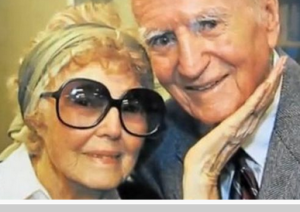Someone wrote to us at diesmart.com and said she needed help finding an attorney so she could get an original death certificate of a deceased relative.
A death certificate is the official certified document which is filed upon a person’s death. You might wonder why she would need an original or certified copy. There are several possible reasons; here are just a few of them.
- To settle an estate
- To end government services such as Social Security or Medicaid
- To collect on an insurance policy
We may not know the exact reason she needs one but there is one thing that is certain; she definitely doesn’t need an attorney to get a death certificate.
Here are the simple steps that she, and anyone else who needs one, should take. There are several websites that offer to help you obtain copies of death certificates. However, those copies are not certified or “official”.
1. Determine whether you are eligible to receive a death certificate. In most states, you must be a surviving relative of the deceased, their authorized representative or executor, or a funeral director in charge of the disposition of the deceased.
2. Find the contact information for the department of vital statistics in the state where the person died. This department may be part of the state’s department of health and human services or the state’s records department. Regardless of its name, it is where all births, deaths, marriages and divorces are recorded for that state. You can usually find the contact information by searching the web. You will need the mailing address for submitting a request and, if you have questions about the process, you should also find their phone number.
3. Some states require a letter with a great deal of information about the deceased as well as the requestor. Others have a form available online which can be downloaded. Regardless of whether it’s a letter or a form, you will have to provide the necessary information and either mail it to the facility or take it there.
Here’s the information that must be provided:
- Full name of the deceased
- Date of the request
- Deceased’s date of birth and date of death
- Location of the death (city, state, county)
- The deceased’s gender – male or female
- Your relationship to the deceased
- Why the certified copy of the death certificate is needed
- A copy of your driver’s license or, at least, your driver’s license number and issuing state
- Your name and current address
- Your handwritten signature
4. Write a check for the amount due. Most states charge between $10 and $15 per certified copy and it usually takes a week or 10 days for you to receive the copy. In addition, some states offer same day service for a higher fee.
5. Place the completed application or letter in an envelope, along with any identity documents and a check or money order to cover the fee. Also enclose a self-addressed stamped envelope in which the certificate you’ve requested can be sent to you. Mail this material to the department address which you obtained earlier.
Although a lawyer may be very helpful in resolving many of the issues that arise after someone dies. However, he or she is not needed if you only want to receive a death certificate.
For more information about death certificates, go to www.diesmart.com.
 But, while thinking about this great couple, being a part of the Die Smart community I can’t help but think about their estate. It’s bad enough if one person dies and a family member has to settle the estate, including dealing with lawyers, probate court and the mounds of paperwork that are necessary. But the double work of settling the estates of two people can be massive.
But, while thinking about this great couple, being a part of the Die Smart community I can’t help but think about their estate. It’s bad enough if one person dies and a family member has to settle the estate, including dealing with lawyers, probate court and the mounds of paperwork that are necessary. But the double work of settling the estates of two people can be massive.